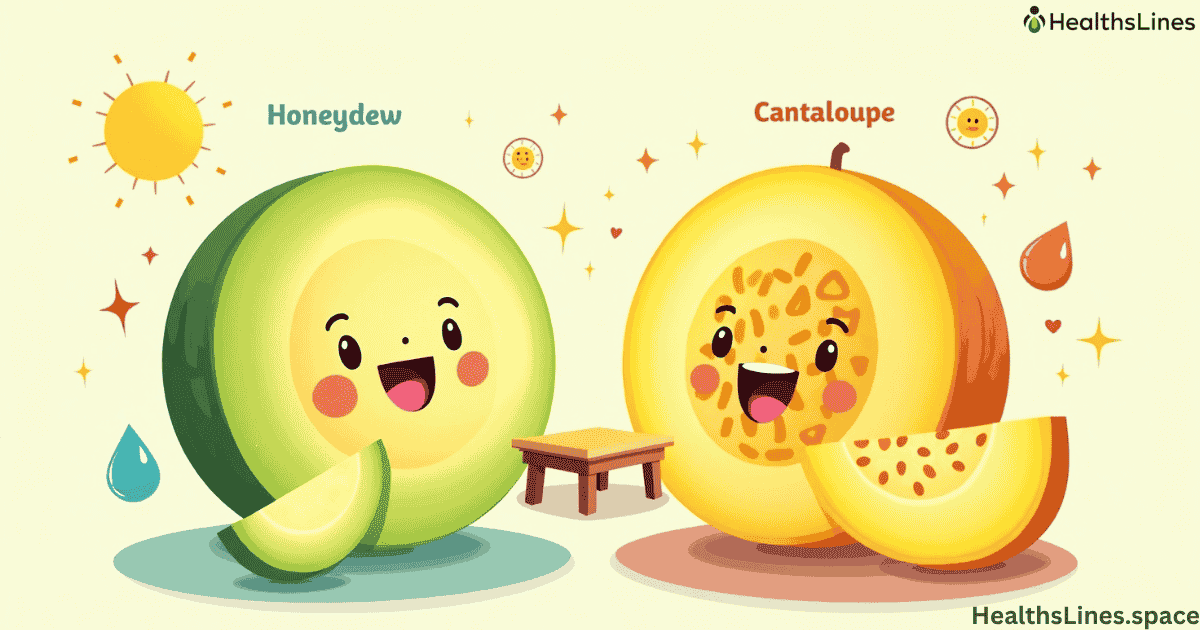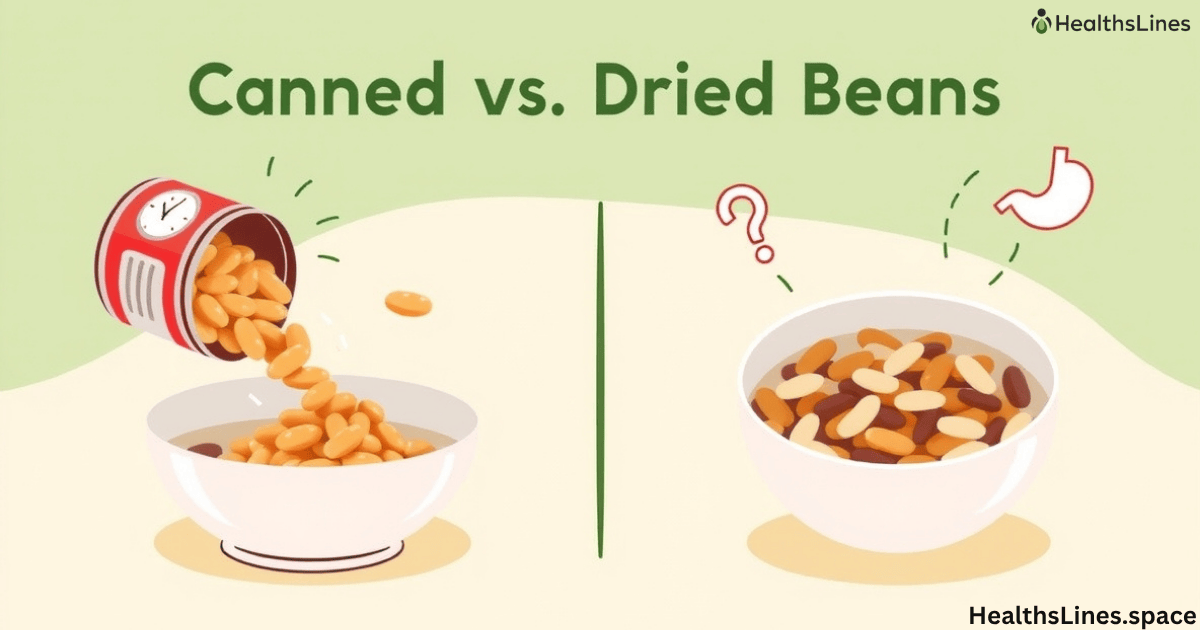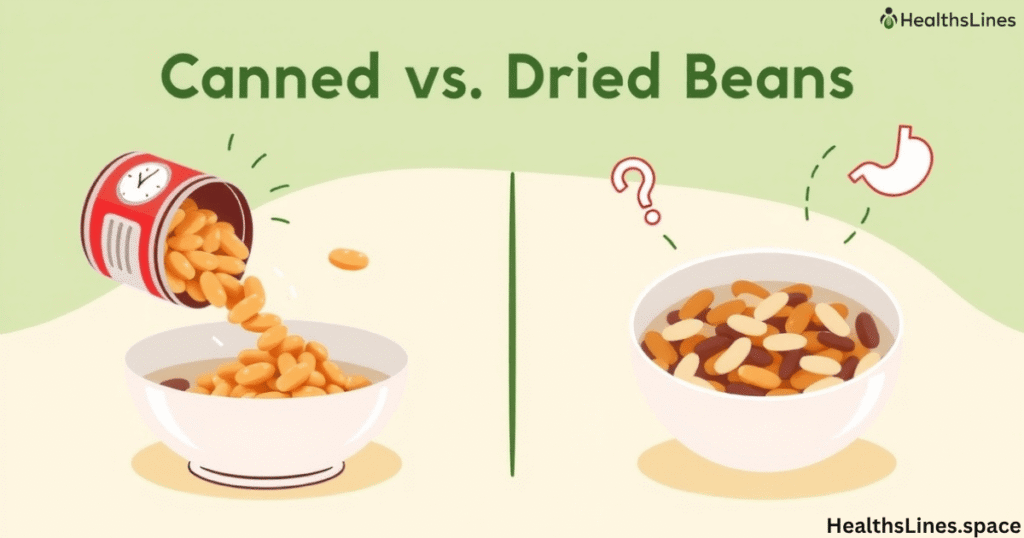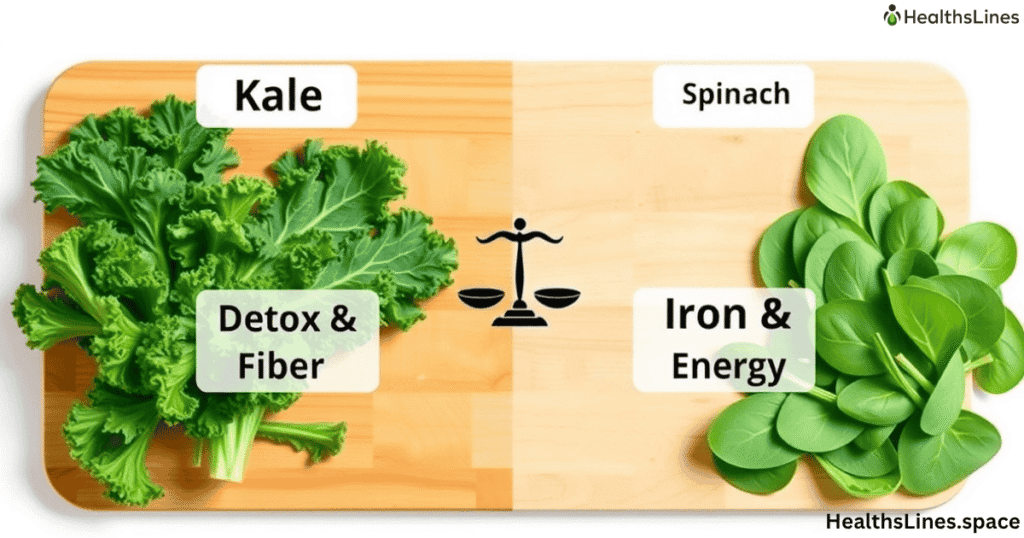Summer is the perfect time for fresh fruits, and melons are among the top picks. But when it comes to choosing between honeydew vs cantaloupe, many people wonder, which melon is healthier? Both are juicy, sweet, and refreshing, but they offer different nutrients and benefits. They belong to the muskmelon family, yet their flavors, colors, and nutrition profiles aren’t the same. Understanding their differences can help you make a better choice, especially if you care about your health, hydration, or sugar intake.
Let’s take a deep dive into the melon nutrition comparison to see how cantaloupe vs honeydew stack up. We’ll look at everything from vitamins and minerals to how they support your body. Whether you’re adding melon to your smoothie, salad, or just eating it fresh, this guide will help you decide the best fruit for you.
Differences Between Honeydew and Cantaloupe
Even though honeydew and cantaloupe grow in similar ways, they have some clear differences. Cantaloupe has a rough, netted skin and orange flesh inside. Honeydew has smooth, pale green skin and light green flesh. These physical traits also affect the melon taste and texture. Cantaloupe is sweet and juicy with a stronger flavor, while honeydew is milder and slightly firmer.
Another difference is how you tell when they’re ripe. A ripe cantaloupe has a fragrant smell and a slightly soft feel at the stem end. Honeydew is trickier. It doesn’t smell as strong and stays firmer, even when ripe. But the color of its skin turns from green to creamy yellow when it’s ready to eat. These small details matter when choosing your melon, especially if you want the best taste.
Melon Nutrition Comparison Table
Let’s look at a quick melon comparison chart. This is based on 1 cup of diced fruit, roughly 160 grams:
| Nutrient | Cantaloupe (Orange Melon) | Honeydew (Green Melon) |
| Calories | 54 | 61 |
| Water Content | 89% | 90% |
| Sugar | 12g | 14g |
| Fiber in Melons | 1.4g | 1.4g |
| Vitamin A | 106% of daily needs | 2% |
| Vitamin C | 95% | 53% |
| Potassium in Melon | 427mg | 388mg |
| Folate in Cantaloupe | 8% | 3% |
| Beta-carotene in Melon | High | Low |
This table shows clear differences in cantaloupe nutrition and honeydew nutrition. Cantaloupe is richer in vitamin A, beta-carotene, and folate, while honeydew has slightly more sugar but also a bit more water.
Vitamin and Antioxidant Breakdown
When comparing honeydew vs cantaloupe, the biggest difference is in their vitamin content. Cantaloupe nutrition stands out because it’s packed with vitamin A, which comes from beta-carotene in melon. This bright orange pigment turns into vitamin A in your body. It supports your eyes, skin, and immune system. Just one cup of cantaloupe gives you over 100% of your daily vitamin A needs. That makes it one of the best fruits for eye health and skin glow.
On the other hand, honeydew nutrition is higher in vitamin C. This vitamin helps your body produce collagen, heal wounds, and fight off illness. It also works as a powerful antioxidant, which protects your cells from damage. One cup of honeydew gives you more than half your daily vitamin C needs, making it a strong fruit for immune system support.
So when you look at the differences between honeydew and cantaloupe, vitamins and antioxidants make a big impact.
Hydration and Weight Loss Benefits
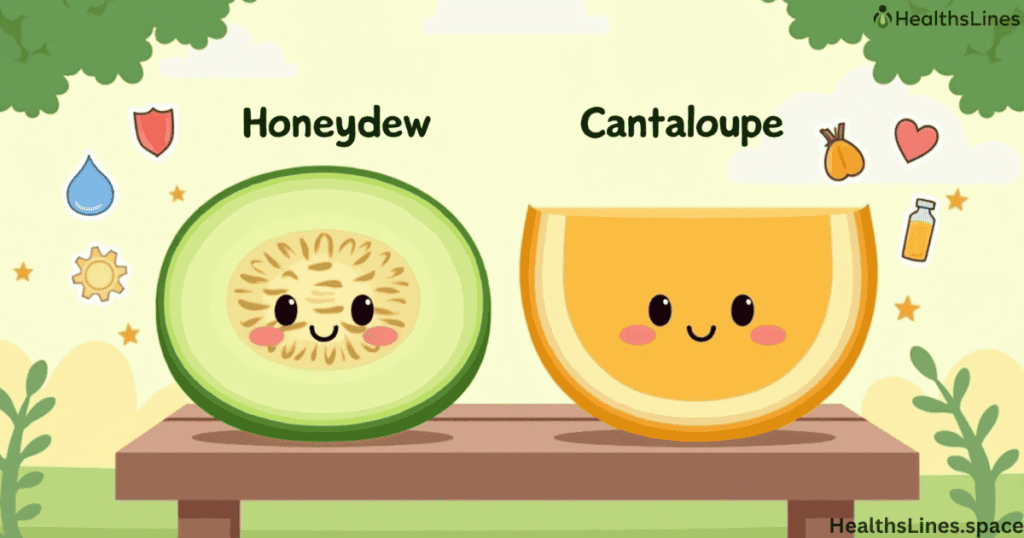
Both cantaloupe and honeydew are over 89% water, which makes them excellent fruits for hydration. If you’re asking, is honeydew or cantaloupe better for hydration, the answer is—they both are, almost equally. But honeydew has a slight edge because of its slightly higher water content.
When it comes to weight loss, both melons are good options. They’re low in calories, rich in water, and provide fiber. These factors help you feel full for longer. Many people consider them low calorie snacks that are naturally sweet without added sugar. Also, their glycemic load is moderate, making them good diabetic-friendly fruits when eaten in reasonable amounts.
Cantaloupe Benefits and Honeydew Benefits
Both cantaloupe and honeydew have unique health benefits, but they serve different needs. Cantaloupe benefits are mainly tied to its rich supply of vitamin A, beta-carotene, and antioxidants in melon. These nutrients are important for eye health, skin glow, and supporting your immune system. The bright orange color of cantaloupe shows how much beta-carotene it contains. This nutrient helps your body fight off illness, heal faster, and even supports better vision. Also, folate in cantaloupe makes it a smart choice for pregnancy nutrition, as it helps protect a growing baby from birth defects.
Meanwhile, honeydew benefits are centered around hydration from fruit, gentle digestion, and a good supply of vitamin C in honeydew. It helps the skin make collagen and supports your immune system. Honeydew also contains more potassium in melon, which helps keep your heart and muscles working properly. Because of its high water content, honeydew is a great fruit for blood pressure and fluid balance. It’s considered an electrolyte-rich fruit, making it ideal for hot weather or after exercise.
So when comparing honeydew vs cantaloupe, your best choice depends on your needs. Go with cantaloupe for deep immune and skin support. Choose honeydew if you’re looking for hydration, gentle digestion, and heart-friendly nutrients.
Who Should Choose Which Melon?
Your choice between cantaloupe vs honeydew depends on your personal health goals. If you need vitamin A, go for cantaloupe. It’s also great if you’re looking for a fruit for eye health, skin glow, or to support your immune system. People with iron deficiency might also benefit, as vitamin A helps iron work better in the body.
If you want more hydration, better digestion, or a fruit that’s easier on the stomach, honeydew is a better choice. It’s especially helpful for people who are dehydrated or sick, thanks to its water and electrolyte levels. Plus, its mild taste can be more appealing for those who find cantaloupe too strong.
Melon Taste and Culinary Uses
Culinary use depends a lot on melon taste and texture. Cantaloupe has a sweet, musky flavor and is often used in smoothies, fruit bowls, and desserts. Many people love cantaloupe in smoothies because it blends well and adds a bright color. It also pairs well with salty foods like fruits to pair with cheese such as feta or prosciutto.
Honeydew, with its subtle flavor, works better in savory dishes or as a topping in honeydew in salads. It’s also ideal for fruit for infused water due to its high water content and light taste. Both can be turned into sorbet, popsicles, or even used in cold soups. Whether you prefer a green melon vs orange melon, both have a place in your kitchen.
Allergy Risks and Storage Tips
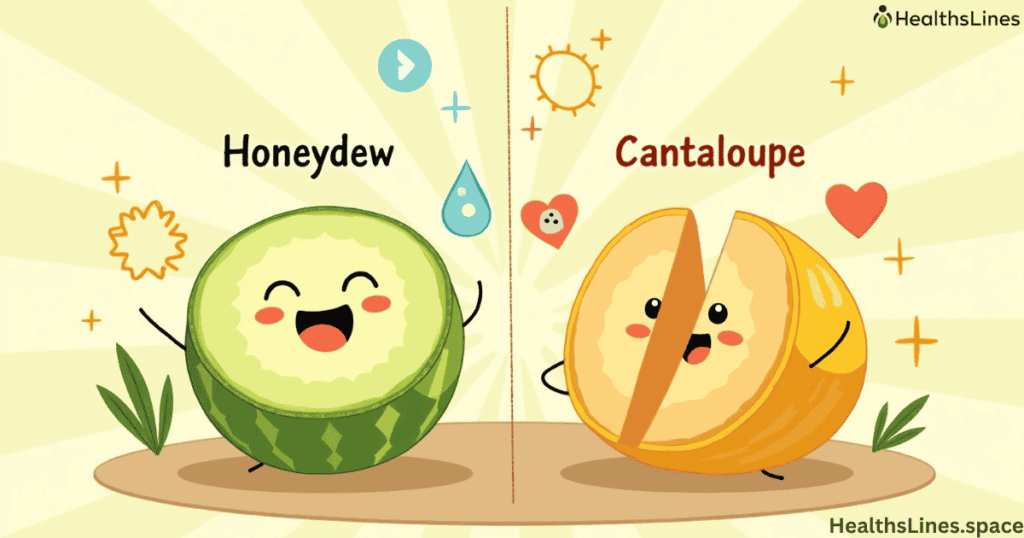
While cantaloupe and honeydew are generally safe for most people, some can experience mild allergic reactions. This condition is called oral allergy syndrome. It often happens in people who are allergic to pollen, especially birch or ragweed. After eating melon, they may feel itching or tingling in the lips, mouth, or throat. In most cases, the reaction is not dangerous, but it’s uncomfortable. If this happens, it’s best to avoid the fruit and talk to a doctor. Knowing the differences between honeydew and cantaloupe can help identify which type may be causing the reaction.
When it comes to storage, both melons require care to stay fresh and safe. Whole melons should be kept at room temperature until ripe. Once cut, you must store them in the refrigerator. Always use clean tools and surfaces. It’s important to wash the outer skin before cutting. Even though you don’t eat the skin, bacteria on the outside can transfer to the inside. Learning how to cut melon safely helps prevent foodborne illness. Cut melon should be kept in a sealed container and eaten within 3 days. This rule applies to both pre-cut melon and melon cut at home.
Market Price, Season, and Accessibility
Cantaloupe and honeydew are both widely available, especially during warmer months. Cantaloupe usually peaks from June to August, while honeydew peaks from August to October. Prices vary by region, but cantaloupe is often a little cheaper due to its higher supply.
If you’re shopping for the healthiest melon to eat, look at your local store’s stock. Choose melons that are firm but slightly soft at the ends, with a sweet smell. Buying in season ensures the best flavor and price.
Conclusion
So, what’s healthier: honeydew or cantaloupe? The answer depends on your needs. If you want more vitamin A, beta-carotene, and folate, cantaloupe is the better choice. It’s the top pick for skin, eyes, and pregnancy. If you’re looking for a fruit that hydrates well, helps balance fluids, and gives you vitamin C and potassium, honeydew is perfect.
When it comes to cantaloupe vs honeydew for weight loss, both are excellent choices. They have low calories, lots of water, and fiber to keep you full. Add either to your daily routine to boost your health, enjoy the flavor, and stay hydrated all summer long.
Sources
USDA FoodData Central
Healthline – Cantaloupe vs Honeydew
NIH – Vitamin A and C Benefits
